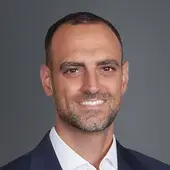Financial planning is all about living the life you want to live. A comfortable retirement might be your ultimate goal, but what does that look like for you? Beyond that, how do you expect to get there?
You need a financial action plan, and no plan is complete without a starting point. After all, you can only plan to reach a destination if you know from where you're starting.
In this first of three articles on creating a solid financial action plan, we’ll cover three steps to find your starting point. So, let’s get started.
1. Take Inventory of Your Finances
You may have never sat down and taken the time to figure out how much money you have. And we’re not talking about balancing your checkbook—we’re talking about your total net worth.
Start by thinking about your "safe" money, which has no risk of principal. This is the money in your checking accounts, savings accounts, money market accounts, and CDs. CDs and bank products are FDIC insured to specific limits and offer a fixed rate of return if held to maturity. Add up everything you have in these accounts and write it down.
Then, move on to your investments. What do you have in your 401(k)? Do you have an IRA? Do you have an employer-sponsored plan? If so, how many do you have? What about other investments like 529 Plans, properties or second homes, or precious metals like gold and silver? Investments are usually a bit harder to add up. Still, you’ll likely be getting quarterly or year-end statements from your various financial holdings, so hold on to them and use those documents as the basis for your inventory.
Finally, if you know the basics of creating a balance sheet, you know it's about keeping track of your assets and liabilities. What kinds of liabilities do you have? Do you have a mortgage or an auto loan? Maybe you have unpaid medical bills. What about student loan debt? Are your credit cards paid off?
A solid financial action plan will use all of this to help you determine your starting point.
2. Include More Than Just Your Money
Once you have your financial inventory, it’s important to remember that you should be thinking about more than just money. Knowing where it will go when you pass away can be just as important as knowing how much money you have. It's essential to have a comprehensive picture of your financial situation before you can build out and enact a plan. That’s where—and why—estate planning comes in.
Take the first step towards financial security. Click here to schedule your free consultation with our experienced advisors.
Consider your estate planning documents like your will and/or any trusts you might have. Make sure you have beneficiaries designated for all your accounts. When setting up these bank or brokerage accounts, if you don't ask for a payable on death (POD) or transfer on death (TOD) designation, banks won't freely put one there for you. So, in your head, you might think you have beneficiaries designated for all your accounts, but it's possible you don't.
Beyond ensuring your beneficiary designations are up-to-date, review your insurance situation to ensure your family has protected you if something happens to you. Insurance is the "moat around your castle," so check your insurance to ensure you have enough (or don't have too much!).
Finally, take inventory of personal property like jewelry, valuable collectibles, artwork, etc. Make sure you’re as thorough as possible when recording everything.
3. Get Organized
As you go through all your accounts, planning documents and insurance policies, make sure to write down what you have and keep all your financial statements in a secure, easy-to-access location. These will be the jumping-off points for your economic action plan. Whether it’s a fireproof safe, a safety deposit box in your local bank or even just a file cabinet or desk drawer, you want to store all your essential financial documents somewhere you can easily find and access them.
Enter everything into a digital spreadsheet and save it in the cloud. Nearly all these tools have organization features that allow you to create different tabs for your accounts, investments, liabilities, and more. This gives you an easy-to-read picture of your finances that you can access anywhere with an internet connection. This can also be where you document passwords and other data as you create an estate plan for digital assets.
Recording, organizing and storing all this information is so important because it’s much easier to hold yourself accountable to your goals when you can see what you have or are spending. Knowing what you have, where everything is, and where you are right now are important to determine where you are and where you want to be in 5, 10 or even 20 years. It makes it easier to measure your progress against your future goals. Say you have X amount now and want to have Y amount in 10 years; you can see how much you have after five years to determine if you're on track or need to make some adjustments to your plan.
While this might seem like a lot, you can do it with others. The advisors at Wealth Enhancement Group can help you with all of the above. In your introductory meeting, an experienced financial advisor can help you take inventory of your finances, look at any estate planning documents or beneficiary designations you may have, and help you record it all and organize it in one place. It’s the first step in our three-step UniFi™ process, and it brings together all the aspects of your financial life to see how each piece can contribute to your financial goals. Beyond that, our advisors can keep up-to-date with changes in your life to ensure that this information is always up to date.
And if you get started with your organization project and run out of steam, don't sweat it! Gather your documents, box them up, and schedule a meeting today to create and enact your new year's financial plan.


